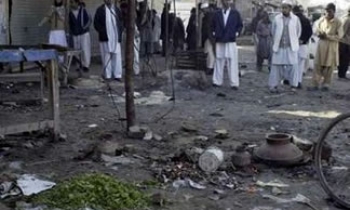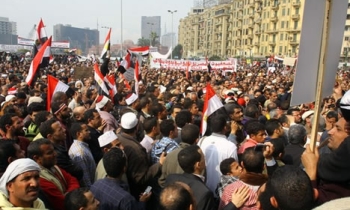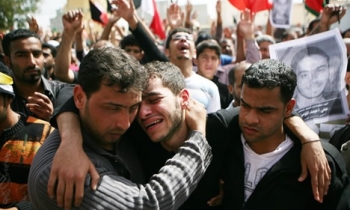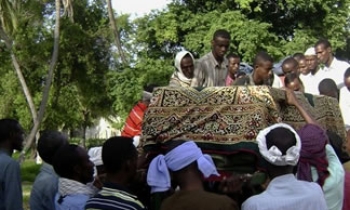BRUSSELS, Feb 7 (Reuters) - The European Union, split over the rights and wrongs of cartoons of the Prophet Mohammad, urgently sought ways on Tuesday to end violent protests against European missions and citizens in Arab and Muslim states.
EU president Austria said in a strongly worded statement it had instructed its embassies in the Middle East, Asia and Africa to demand increased security measures for European citizens and premises after a wave of anti-European violence by angry Muslim protesters.
"In the name of the EU, they have demanded that protection for European citizens be ensured and further acts of violence prevented under all circumstances," the statement said.
Austrian Foreign Minister Ursula Plassnik said national authorities must take the necessary steps to ensure security.
"The authorities in Egypt, Algeria, Ethiopia, Iran, Jordan, Indonesia, Kuwait, Lebanon, Libya, Malaysia, Morocco, Oman, Pakistan, Saudi Arabia, Syria, Tunisia, Turkey, United Arab Emirates and the Palestinian Territories were also reminded of their obligations under the Vienna Convention on Diplomatic Relations to protect the diplomatic missions of the EU Member States," said the statement issued late on Monday.
It followed the torching of Danish diplomatic missions in Damascus and Beirut at the weekend, attacks on the EU office in Gaza last week and the petrol bombing of the Danish embassy in Tehran on Monday.
EU ambassadors met for a second day to discuss their response to the violence triggered by the republication in several European newspapers of cartoons first published by a local Danish daily last September.
Depicting the Prophet Mohammad is prohibited by Islam. One of the cartoons showed him with a turban resembling a bomb.
JOINT APPEAL
The European Parliament issued a joint appeal with the parliaments of 10 Mediterranean partner countries calling for an end to violence and a return to calm and dialogue.
Reflecting ambiguity in the EU over the limits of freedom of expression, European Parliament President Josep Borrell said he personally found some of the cartoons offensive and insulting, but that could not justify violence or incitement to violence.
"We want to get away from this cultural clash of civilisations and get back on the track of dialogue among civilisations," he told a news conference.
He said he would visit Morocco at the weekend to attend a series of events aimed at promoting interfaith understanding.
EU foreign policy chief Javier Solana was in touch with the main international organisations in the Muslim world -- the Organisation of the Islamic Conference, the Arab League and the Gulf Cooperation Council -- to urge them to help restore calm and might also travel to the region, an official said.
European diplomats highlighted the contrast between attacks on the EU office in Gaza and the Europeans' role as main aid donor to the Palestinians and in facilitating the only border crossing from the Gaza Strip into Egypt, which 100,000 people have crossed since it was opened on Nov. 26.
A spokeswoman for the executive European Commission stressed there was no question of halting EU aid to the Palestinians because of the protests.
The official said EU institutions should focus on efforts to get Arab and Muslim governments to control the streets and rein in violence rather than engaging in a divisive debate over the limits of freedom of speech and respect for religion.
The 25 EU member states differ over how to deal with publications that cause racial or religious offence and a European Commission official said there was little hope of reconciling national policies, given different legal systems.
Some states criminalise any publication deemed racist while others punish only incitement to hatred or violence. Denying the Nazi Holocaust is an offence in some but not all EU countries.
Violence over the cartoons spread further on Tuesday with four deaths in an attack on Norwegian NATO peacekeepers in Afghanistan and another attack on the Danish mission in Iran.









